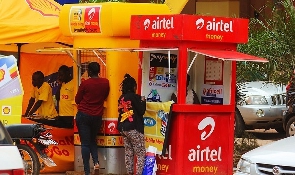The Mobile Money Agents Association of Ghana (MMAAG) is calling for the Government to revise the daily threshold of Electronic Transfer Levy (E-Levy) from GH¢100 to GH¢500.
It also called for a further reduction of the rate charged on daily transactions exceeding GH¢100 from one percent to 0.5 percent, while addressing the loopholes in the tax handle to stimulate tax compliance and revenue target actualisation.
The call comes as the Government implements the new one percent rate, effective Wednesday, January 11, 2023, a 0.5 downward percentage revision from the previous 1.5 percent rate.
A study by the Centre for Economics, Finance, and Inequality Studies (CEFIS), has shown that a reduction of the rate to 0.5 percent could increase revenue from the levy to GH¢3.2 billion in 2023, which is higher than the Government’s projected GH¢2.6 billion for the same period.
The figure is expected to increase to GHS3.6 billion in 2024 and reach GH¢4bn by 2025, which are equally higher than the Government’s expected revenue of GH¢3bn and GH¢3.4bn for 2024 and 2025, respectively.
The Centre noted that a 0.5 tax rate on E-ley would increase tax compliance hence, more transactions through MoMo – the major source of electronic transactions particularly among the poor and the number one driver of financial inclusion in Ghana.
When the Ghana News Agency, spoke to Evans Otumfuo, the General Secretary of MMAAG, he described the reduction of the rate from 1.5 percent to one percent, as welcoming.
Mr Otumfuo, however, said there was the need for a further reduction because the 1.5 percent rate had put pressure on the MoMo industry and negatively affected their operations and that of other businesses.
He said: “The rate should come down and when that’s done, people who may think of alternatives will see the rate as insignificant and they’ll gladly accept to pay, so we’re calling for a rate for the levy to be between 0.1 to 0.5 percent.”
He added, “If you walk to the bank, you’re at liberty to transact GH¢20,000 daily without any E-levy applied to you, but if you come to the MoMo platform, it’s only GH¢100. So, the threshold for MoMo should be extended to GH¢500.”
“Consumers are sensitive to prices such that so when prices are lower, consumption will be higher, so, with the data that will come from the volumes of transactions, we expect that going into the mid-year budget review or the 2024 budget preparation, there should be a further reduction in the rate.” Mr Otumfuo, said.
The Government’s hope of raking in about GH¢6.9 billion in taxes from the E-levy failed in 2022, leading to several revisions in the revenue projections with the recent one being GH¢594 million for quarter four of 2022 per data in the 2023 budget.
Data from the Ghana Revenue Authority (GRA) also showed that revenue from the E-Levy between May and September 2022, was GH¢328m – which was some 10 to 15 percent month-on-month improvement in the collection of the tax.
Mr Otumfuo was hopeful that the one percent rate would make traders and individuals who did larger volumes of transactions made some business sense to use MoMo as the major platform for their payment of goods and services to shore up revenue.
To boost the interest of Ghanaians to use MoMo more, he called for capping on huge sums of daily transactions and said: “The Government can cap transactions and say any amount above GH¢5,000, you’re to pay a GH¢50 or GH¢100.”
“With this capping, it will provide a conducive environment for the MoMo to strive further,” the General Secretary of Mobile Money Agents Association of Ghana, told GNA.
Some MoMo vendors, traders and individual users of MoMo, who spoke to GNA said the reduction would have positive effects on their daily lives.
The Ghana Chamber of Telecommunications has assured that the systems of telco operators had been reconfigured to make the new rate of one percent after a daily transaction of GH¢100 threshold was applied effectively.
Business News of Thursday, 12 January 2023
Source: GNA













